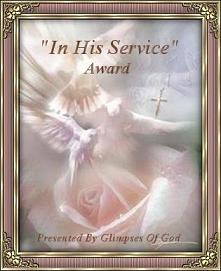My love for writing, and all things writing-related, often wins out. Unfortunately, the love I feel is often the selfish kind. I want to write because of the pleasure it gives me, the feedback it earns for me, etc.
After one such day recently, when I finally got to the pile of dishes that had been waiting for hours, I could almost hear the Lord asking me the same question He asked Peter.
"Do you love me?"
I was already feeling a bit exasperated with myself for spending so much time on writing, so the question really hit home. So did the words of a wonderful devotional by George H. Morrison (1866-1928). It was based on 1 John 3:20, which says, "For if our heart condemns us, God is greater than our heart, and knows all things."
Morrison says, "It has been thought by many, and I believe with truth, that there is a beautiful reminiscence here—a reminiscence of that scene beside the Sea of Galilee. 'Simon, son of Jonas, lovest thou me? Yea, Lord, thou knowest that I love thee.' Three times over Simon had denied; three times over was the question put. Who can doubt that on that summer morning, faced by the Lord whom he had treated so, Simon Peter had a condemning heart. Only a week before the Lord had looked on him, and he had gone out into the night and wept. He had promised to play the hero in the crisis, and he had proved the veriest of cowards. And now, with all these memories of betrayal crying out to condemn him in his heart—'Simon, son of Jonas, lovest thou me?' What was there that Simon could appeal to? His word? His word had broken like a straw. His past—when only a few days before he had been false and recreant to the Master? But Peter cast himself in his despair upon the perfect knowledge of his Lord—'Lord, thou knowest all things, thou knowest that I love thee.' John was present when these words were uttered, and words like these can never be forgotten. They haunt the memory and deepen in significance and live again when the hour of teaching comes. And I for one believe that that sweet hour was vividly present to the mind of John when he gave the Church the comfort of our text. When our heart condemns us we are like Simon Peter, and like Peter we have naught to plead. But when our heart condemns us, we can still turn to God who is greater than our hearts and knoweth all things—knoweth what no one else could ever know, judging us by our failures and betrayals, that we still love Him, and still desire His presence, and still want to follow and to serve."
I found myself answering the Lord as Peter did, with a sigh of one who wishes she had a better answer.
"Lord, you know that I love You."
My life is not devoid of evidence of my love for God, but it tends to be lopsided in its expression. Practical expressions, the kind that involves rolling up sleeves and working up a sweat, tend to be obvious in their absence. And on that particular day, I wished I had filled my day with such work...done in love. It would have done my heart good to have seen such things, so that I might "assure my heart before Him" (1John 3:18-19)
And I heard Jesus' answer.
"Feed My sheep."
The apostle John also said, "If someone says, 'I love God,' and hates his brother, he is a liar; for he who does not love his brother whom he has seen, how can he love God whom he has not seen?" (1Jn 4:20)

Love for God and love for our fellow man are tied up so intricately together!
Oh Lord, please increase my love for You, and for others. May I love them as You love them...as You also love me...unselfishly, unstintingly, unendingly. May I write to bless others, not myself. And may I get up from my writing to bless others, too. Teach me what it means to feed your sheep.
(Photo from Stock.xchng by Hislightrq)













No comments:
Post a Comment